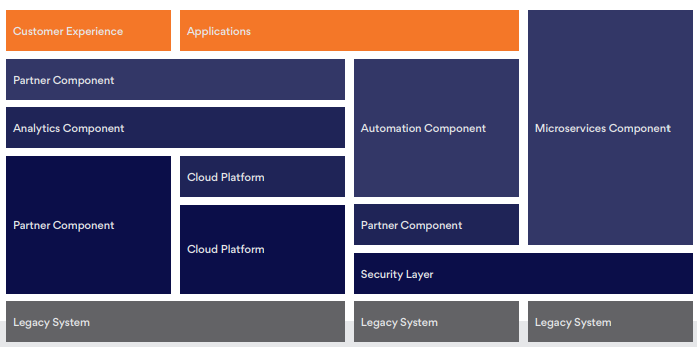
Scam 1992- The Harshad Mehta Story is trending for a while.
Some snippets from the book, The Scam, by Madam @suchetadalal & Sir Debashish (@Moneylifers) that probably needs more attention from investors’ point of view than the emotional chords the series touched.
A thread
Some snippets from the book, The Scam, by Madam @suchetadalal & Sir Debashish (@Moneylifers) that probably needs more attention from investors’ point of view than the emotional chords the series touched.
A thread
1/
Valuation Principle
“The cornerstone of Harshad’s philosophy was his pet Replacement Cost Theory, under which existing companies ought to be valued at the much higher cost of replacing them and not at the much lower historical cost as per conventional accounting methods.”
Valuation Principle
“The cornerstone of Harshad’s philosophy was his pet Replacement Cost Theory, under which existing companies ought to be valued at the much higher cost of replacing them and not at the much lower historical cost as per conventional accounting methods.”
2/
Modus Operandi
"Traders earning 2.5 cr salary; 1-yr-old finance companies buying & selling shares worth Rs 7000 cr; blank bank documents (bank receipts or BRs) stacked in brokers’ offices; crores of rupees sent by one bank to another, but deposited in individual accounts."
Modus Operandi
"Traders earning 2.5 cr salary; 1-yr-old finance companies buying & selling shares worth Rs 7000 cr; blank bank documents (bank receipts or BRs) stacked in brokers’ offices; crores of rupees sent by one bank to another, but deposited in individual accounts."
3/
Banks Vs Brokers
Harshad’s brother Ashwin said: “We had become the principals while the banks were acting as brokers. Banks could decide on the brokerage they would pay. We used to tease them by asking how much bankerage they would charge on the deals we created for them.”
Banks Vs Brokers
Harshad’s brother Ashwin said: “We had become the principals while the banks were acting as brokers. Banks could decide on the brokerage they would pay. We used to tease them by asking how much bankerage they would charge on the deals we created for them.”
4/
Speculation
“It was possible to trade dangerously, win handsomely, and even have a part of the megabucks spill over into one’s pocket. It was like transforming oneself overnight into a go-getting entrepreneur in an area still regimented and controlled by the State.”
Speculation
“It was possible to trade dangerously, win handsomely, and even have a part of the megabucks spill over into one’s pocket. It was like transforming oneself overnight into a go-getting entrepreneur in an area still regimented and controlled by the State.”
5/
Trust
“The password to this world of accommodation was “trust”. Deals were put through first and the paperwork was done later. Sometimes even that was unnecessary. Call money transactions took place overnight, via the telephone & call receipts were sent leisurely later.”
Trust
“The password to this world of accommodation was “trust”. Deals were put through first and the paperwork was done later. Sometimes even that was unnecessary. Call money transactions took place overnight, via the telephone & call receipts were sent leisurely later.”
6/
Equity Research
“Harshad’s drive to determine & monitor the critical factor that cud make or break Premier was a crude attempt at equity research at a time when the stock market was more of a gambling den, shooting up & down purely on rumours, speculation & money power.”
Equity Research
“Harshad’s drive to determine & monitor the critical factor that cud make or break Premier was a crude attempt at equity research at a time when the stock market was more of a gambling den, shooting up & down purely on rumours, speculation & money power.”
7/
Value Investing
“Tea prices had gone up by Rs 3-4 a kg but this was still not reflected in the stock prices of tea companies. There were specific scrips that seemed terribly under-priced. McLeod Russell was paying a 20% div yr after yr but was still selling for just Rs 14.”
Value Investing
“Tea prices had gone up by Rs 3-4 a kg but this was still not reflected in the stock prices of tea companies. There were specific scrips that seemed terribly under-priced. McLeod Russell was paying a 20% div yr after yr but was still selling for just Rs 14.”
8a/
Abandons Speculation
He realized that a speculator has no chance of winning consistently in Indian markets. “If the margin is 40%, you make only Rs 60 every time you book a profit of Rs 100 and pay Rs 140 for every Rs 100 of loss. It is a lose-lose situation”
Abandons Speculation
He realized that a speculator has no chance of winning consistently in Indian markets. “If the margin is 40%, you make only Rs 60 every time you book a profit of Rs 100 and pay Rs 140 for every Rs 100 of loss. It is a lose-lose situation”
8b/
Abandons Speculation
“Now, the law of probability says over the long run you win once lose once. If you win twice consecutively, your chances of losing the next time are double and so is the probable loss. So when the loss hits, you are wiped out.”
Abandons Speculation
“Now, the law of probability says over the long run you win once lose once. If you win twice consecutively, your chances of losing the next time are double and so is the probable loss. So when the loss hits, you are wiped out.”
9/
Money Market
“I realised that in money markets, the crucial thing was communication. So I gave hotlines to all brokers. Citibank’s brokers wanted a profit on every deal. I was prepared to take small losses. My goal was to prove that I can do whatever Citibank can.” ~HM
Money Market
“I realised that in money markets, the crucial thing was communication. So I gave hotlines to all brokers. Citibank’s brokers wanted a profit on every deal. I was prepared to take small losses. My goal was to prove that I can do whatever Citibank can.” ~HM
10/
Contrarian Thinking
“1. Price of scrip is independent of its current earnings (and so P/E is irrelevant).
2. At high prices people don’t sell, they buy! In a growing economy, a high P/E is itself a great reason for growth, a reason for buying such expensive stocks.”
Contrarian Thinking
“1. Price of scrip is independent of its current earnings (and so P/E is irrelevant).
2. At high prices people don’t sell, they buy! In a growing economy, a high P/E is itself a great reason for growth, a reason for buying such expensive stocks.”
11/
Economy Vs Stock Markets
"In stock markets, it is the other way round. If the stock prices are on the upswing, the demand is also high. And when the price is falling, demand also falls, and the supply increases.”
Economy Vs Stock Markets
"In stock markets, it is the other way round. If the stock prices are on the upswing, the demand is also high. And when the price is falling, demand also falls, and the supply increases.”
12/
The endgame of the Story Stocks
“Harshad’s perception theory reached its logically absurd end when several loss-making companies like Karnataka Ball Bearing and Amar Dyechem were quoting at crazy prices just because Harshad was said to be buying.”
The endgame of the Story Stocks
“Harshad’s perception theory reached its logically absurd end when several loss-making companies like Karnataka Ball Bearing and Amar Dyechem were quoting at crazy prices just because Harshad was said to be buying.”
13/
The Bear Cartel
“Manu Manek was like a parallel stock exchange with a nation-wide link-up, supplying shares in bulk to anybody who had difficulty in delivering. This camp depended on the support of the stock exchange, which they thought was their rightful fiefdom."
The Bear Cartel
“Manu Manek was like a parallel stock exchange with a nation-wide link-up, supplying shares in bulk to anybody who had difficulty in delivering. This camp depended on the support of the stock exchange, which they thought was their rightful fiefdom."
14/
PSU Divestment Plan
“If u continue to throw away the PSU shares for a song, the govt will fall. A disinvestment panel, headed by Krishnamurthy, should package the deal attractively & redeem the PSU debt through a debt-equity swap.” HM
PSU Divestment Plan
“If u continue to throw away the PSU shares for a song, the govt will fall. A disinvestment panel, headed by Krishnamurthy, should package the deal attractively & redeem the PSU debt through a debt-equity swap.” HM
15/
The Buccaneer Bankers
“The practitioners of the fine art of indirect malpractices were the buccaneering foreign banks. Citibank though was the smartest. Citi’s strategy was to bend the rules for a fast buck. If charged deny it. If caught say sorry and try to do it again.”
The Buccaneer Bankers
“The practitioners of the fine art of indirect malpractices were the buccaneering foreign banks. Citibank though was the smartest. Citi’s strategy was to bend the rules for a fast buck. If charged deny it. If caught say sorry and try to do it again.”
16/
The Perception Game
“The whole game is one of perception. Everybody was in the scam. In the end, what made the difference was who had the time to cook the books and use influence and who didn’t.” ~HM.
The Perception Game
“The whole game is one of perception. Everybody was in the scam. In the end, what made the difference was who had the time to cook the books and use influence and who didn’t.” ~HM.
17/
We hope that the above snippets would inspire you to buy the book and read it.
There are numerous books on the history of the stock market outside India.
Very few on the history of the Indian stock market.
“The Scam” is one rare book.
You can't miss it.
End
We hope that the above snippets would inspire you to buy the book and read it.
There are numerous books on the history of the stock market outside India.
Very few on the history of the Indian stock market.
“The Scam” is one rare book.
You can't miss it.
End
• • •
Missing some Tweet in this thread? You can try to
force a refresh














